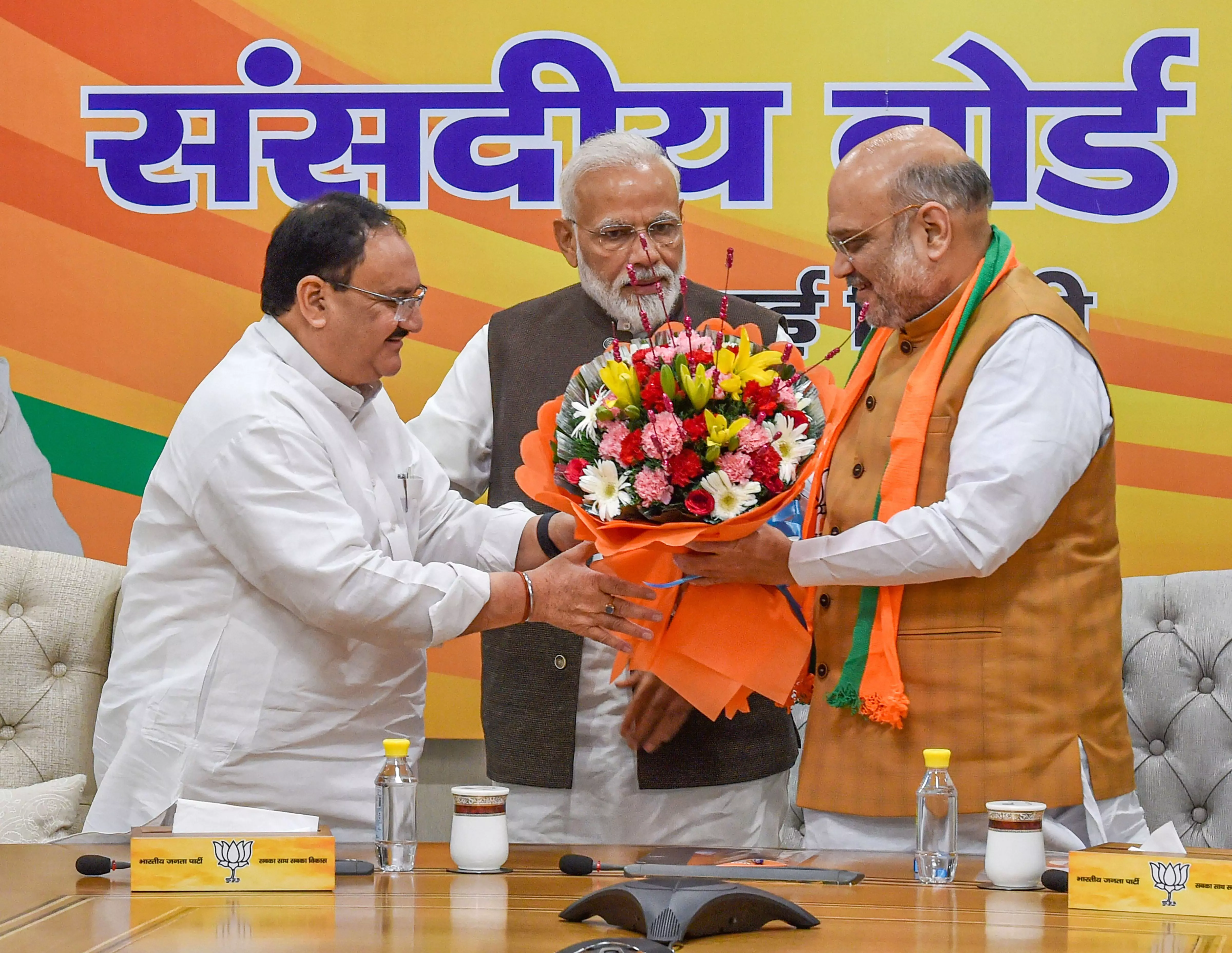
Why elections in Jammu and Kashmir, Haryana are litmus test for BJP
While Jammu and Kashmir will witness assembly polls for the first time after the abrogation of Article 370, the elections in Haryana are critical for the BJP because the state has been the epicentre of farm protests

The announcement of assembly elections in Jammu and Kashmir and Haryana will be a litmus test for the ruling BJP as the people there will vote on some of the key policy decisions taken by the Union government over the past few years.
While Jammu and Kashmir will witness assembly elections for the first time in a decade and 5 years after the abrogation of Article 370, the elections in Haryana are critical for the BJP because the state has been the epicentre of farm protests and the demand of a legal guarantee for minimum support price (MSP).
Tough times in Haryana
If the recent Lok Sabha elections results are anything to go by, then the BJP government in Haryana is in a spot. The party was forced to change its chief minister in the state and it was the weakest performance of the BJP since the 2014 general elections. To make matters worse, the party won only 5 of the 10 Lok Sabha seats while the remaining seats were won by arch-rival Congress.
“The BJP will play a dominant role in the state politics of both Jammu and Kashmir and Haryana. The abrogation of Article 370 will not impact the elections and the BJP is confident that people will take part in the electoral process in large numbers just as they did in the Lok Sabha elections. The BJP along with some of the regional parties will contest all seats in Jammu and Kashmir and we are confident that we will do well in these elections,” RP Singh, national spokesperson of the BJP, told The Federal.
The BJP has already been facing political challenges in Haryana. The last six months have been the worst phase for the BJP government as it was reduced to minority after Dushyant Chautala-led Jannayak Janta Party (JJP) walked out of the alliance in March this year.
Jolt in Lok Sabha polls
Subsequently, the national leadership was forced to ask then Chief Minister Manohar Lal Khattar to step down to pave the way for Nayab Singh Saini on account of internal feud in the party’s state unit.
The BJP hoped that Saini would be able to revive the political fortunes of the party in the state before the general elections, but it didn’t happen and the party could only win five out of the 10 Lok Sabha seats in the state. Moreover, the BJP lost in all the constituencies dominated by the Jat community.
“Even after the farm protests, the BJP is still the single largest party in Haryana. We have been running a stable government in the state for the past 10 years. It is true that BJP lost some seats in Haryana in the Lok Sabha polls but these are the assembly elections. We are confident that farm protests will not hurt our poll prospects and we will win the assembly polls in Haryana for the third consecutive time,” Singh added.
Farm protests haunt BJP
However, Chief Minister Saini is not ready to take any chances. Hours before the Election Commission came out with the poll schedule, Saini announced that the state government will buy 10 more crops on MSP and each farmer will get a bonus of Rs 2,000 per acre in the ongoing Kharif season.
Political analysts believe that farm protests will continue to haunt the BJP in the assembly elections just as it did in the Lok Sabha polls. “In the 2019 general elections, BJP won all the 10 Lok Sabha seats but it could not get a majority on its own in the state. This time BJP could just manage to win 5 out of the 10 seats, while Congress dominated 46 assembly segments in the general elections. The BJP will face a tough contest in all regions of the state,” Kushal Pal, head of political science department, Dyal Singh College, Karnal, told The Federal.
Demand for statehood in J&K
The elections assume a huge significance for Jammu and Kashmir because it is no longer a state. It was bifurcated into two Union Territories of Jammu and Kashmir and Ladakh after the abrogation of Article 370 in 2019.
Though the BJP leadership decided not to field a candidate in the Lok Sabha polls in Kashmir valley, the party is confident that it will contest all the seats in the assembly polls along with some regional parties.
As the BJP gears up for the electoral test, the issue of restoration of statehood is resonating across Jammu and Kashmir. The challenge for the BJP leadership is that the demand for statehood is not just limited to Kashmir where it is pitted against strong regional forces. The demand is also being backed by the people in BJP’s strongholds in Jammu region.
“This is the first election since the Jammu and Kashmir was made a Union Territory (UT) and we can easily say that restoration of statehood is going to be the single biggest issue in these elections. The demand for statehood is resonating not just in Kashmir but also in Jammu. It is possible that the BJP will play a dominant role in certain regions of Jammu but people have come out to demand statehood in Jammu’s urban areas as well. This is not going to be an easy election for the BJP,” Ellora Puri, a political science professor at Jammu University, told The Federal.

